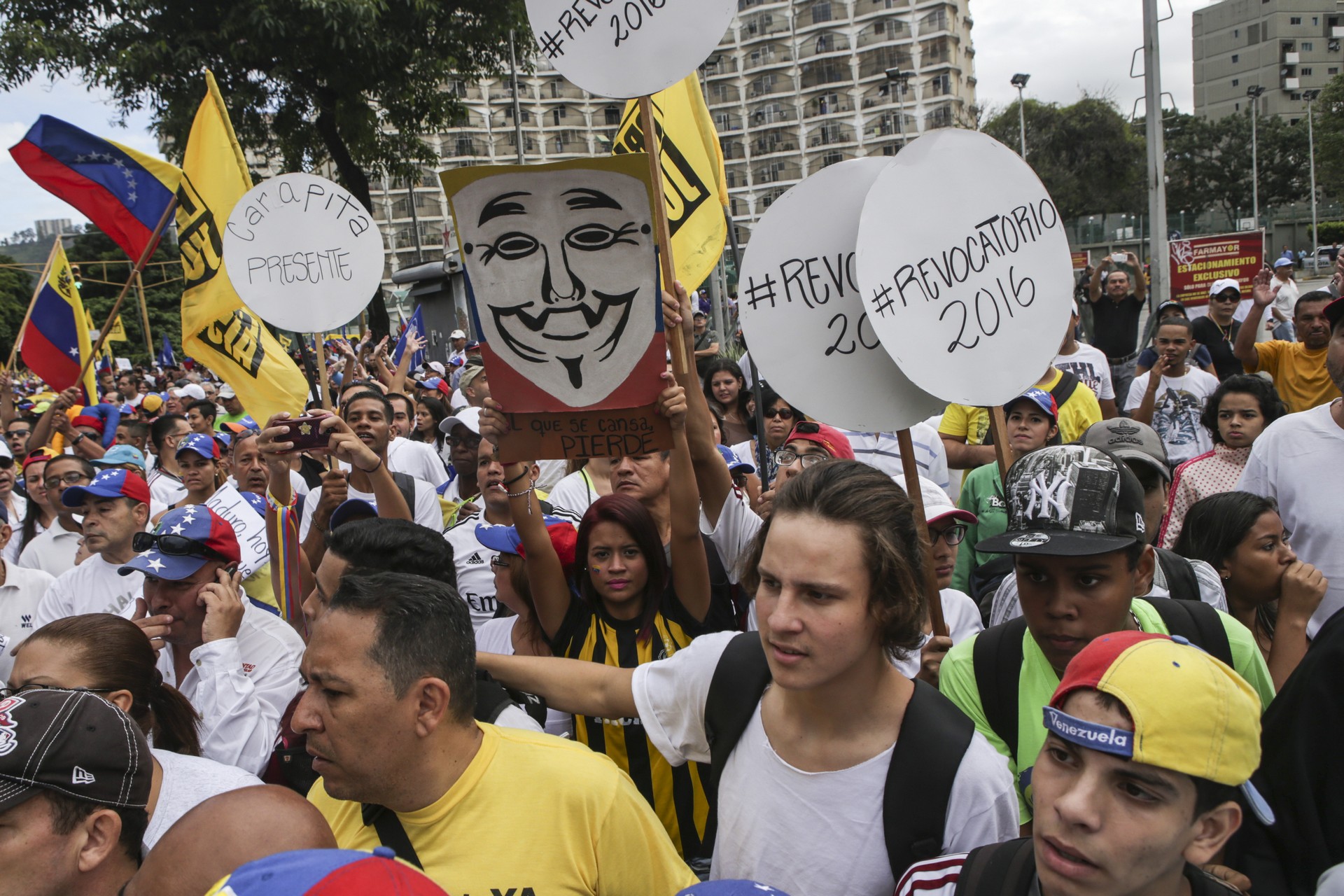March for a Referendum
In
Login if you are already registered
(no votes) |
(0 votes) |
On September 1, 2016, the Venezuelan opposition, which finally managed to join efforts to combat the incumbent Bolivarian regime, staged the largest rally the country has seen for a number of years. The “Caracas Takeover” is what opposition activists call their march, which, according to their reports, joined more than one million people. However, the opponents of President Nicolás Maduro have no intention of stopping there.
The situation in Venezuela is spiralling out of control – not slowly any more, but surely. Until quite recently, the Venezuelan opposition could only dream of having so many supporters of all kinds in the streets of Caracas. A quick glance at the video of the march posted by one of the opposition leaders, Henrique Capriles, is enough to understand the scope of the event. The main demand of the protesters is to finally set in motion a referendum, which the opposition hopes will recall President Maduro’s mandate. The leaders of the protests plan several more rallies in the near future (at least, on September 7 and on September 14), and their persistence is easy to understand. The referendum issue has been pending for many months, and the incumbents benefit from every day of delay. According to the very intricate Constitution of the Bolivarian Republic of Venezuela, such a referendum can only be called after a president has served a half of his term; however, a relatively short period of time is provided to complete the complicated procedure for holding a referendum, which the authorities are hoping to wait out. If they are lucky, they will simply replace Maduro with Vice President Aristóbulo Istúriz in January 2017 without holding an early election, which will otherwise be necessary if the opposition manages to force the administration to call a referendum by the end of the year.

EPA/CRISTIAN HERNÁNDEZ
People participate in a demonstration demanding the electoral power to announce a date for the recall referendum promoted by opposition to revoke the Venezuelan President Nicolas Maduro, in Caracas, Venezuela, 01 September 2016.
Another catch in the organization of a referendum is the number of votes required to recall Maduro. At least the same number of citizens, or more, must vote against him as there were votes in favour of him back in 2013 – in absolute terms, not proportionally. In a country where Chavists control most institutions, including, naturally, the election body, a referendum can have unpredictable results. It is the way they count votes that matters, not the number of voters. However, judging by the efforts the high-ranking followers of Hugo Chavez are making to avoid a referendum, their control of these institutions is not absolute.
While Maduro received a metaphorical “pounding” at the rally staged by the opposition in his absence, his recent trip to Margarita Island almost resulted in very real injuries: rocks and other threatening objects were thrown at the president, and the crowd literally chased him. That was the final warning for the elites: there is nowhere to retreat, and Caracas and the thinking people already do support the opposition.
(no votes) |
(0 votes) |




